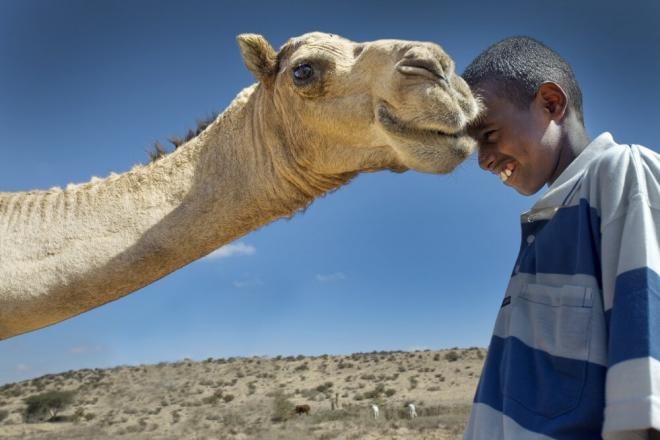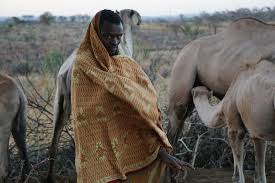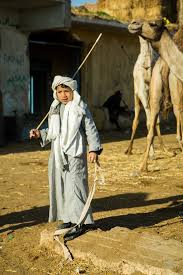 In this 3-part story, Timothy Paulson, Arrive Ministries’ Immigration Counselor introduces us to the in-depth story of a Somali man, Musa, who Arrive Ministries resettled, assisted in applying for his green card, and helped him and his family become U.S. citizens.
In this 3-part story, Timothy Paulson, Arrive Ministries’ Immigration Counselor introduces us to the in-depth story of a Somali man, Musa, who Arrive Ministries resettled, assisted in applying for his green card, and helped him and his family become U.S. citizens.
This story is a rare look into Musa’s life story from his difficult childhood due to extreme tribalism in his homeland of Somalia (part 1), to finding himself separated from his family as a person with refugee status in Thailand (part 2), to his harrowing journey to the United States, as well as his hopes for this nation (part 3).
Part 1/3
I arrived at Safari Restaurant on Lake Street, and sat down across the table from a man who has experienced the kind of things I have only read about in books or seen in movies.

Stock Image of Camel Herder
The man’s name is Musa, and as he settled into the booth across from me, he caught the server’s attention to order some Somali tea. Before I started the interview in earnest, we talked for a bit about our families and the weather. Musa gladly introduced me to the restaurant servers and staff whom he knew well. Then, once we had our tea, I began to ask him some questions about his life and the circumstances that had formed him and brought him here.
[pullquote style=”left” quote=”dark”]I had to take care of our family’s camels from a young age. I would spend up to one year by myself with the camels from the time that I was 11 years old.[/pullquote]“I was always someone who was accountable,” Musa began. “I had to take care of our family’s camels from a young age. I would spend up to one year by myself with the camels from the time that I was 11 years old.”
I shook my head in disbelief, when I was eleven years old, my biggest responsibilities were mowing the lawn and walking the dog. In fact, I loathed mowing the lawn since it meant dodging hills of fire ants in the Florida heat, although it is more likely that I simply preferred to sit inside and play video games instead of working. My immediate impression of Musa was that we not only grew up in completely different cultures, but that he could have taught my eleven year-old self a thing or two about work.
Musa went on to explain that he came from a family of pastoralists, raising camel herds and driving them hundreds of miles across the desert in search of water during dry seasons. The key time to search for water was when the mother camels were expecting their young. It was no short commitment, since camels have one of the longest gestational periods of any mammal, anywhere from 13 to 16 months.

Stock Image of Camel Herder
“There is a certain time of the year that the camels usually become pregnant,” said Musa. “I had to take them across the desert, we had to follow the rain.” Musa’s father would keep on the lookout for weather systems that promised rain, and he trained Musa as his apprentice in guiding the camels across the barren desert, chasing after the water-laden clouds.
“There weren’t any cell phones then,” Musa said with a smile. “My father would meet me about once a month. If I was sick or bitten by a snake, I was all done,” he said with a clap of his hands. Musa also explained that his father would help him find a “home base” in particularly promising areas, where Musa could return with the camels at night so they could sleep in a position of relative safety.
Musa faced many hazards as a pre-teen camel driver. “Hyenas and lions were the worst. But I never faced a lion like my father did when he was young.”
[pullquote style=”right” quote=”dark”](Hyenas) will follow you for days. They look into your eyes, and they just want you to be afraid. They try to scare you or to make you run away, which is when they will attack. You have to be brave.[/pullquote]“So, what about the hyenas?” I asked. “What was it like to have them around?”
Musa shook his head. “They will follow you for days. They look into your eyes, and they just want you to be afraid. They try to scare you or to make you run away, which is when they will attack. You have to be brave.”
I considered for a moment how brave I would have been around hyenas in the desert as an adolescent, and then queried aloud what he would do if there were more than one hyena. “Climb a tree,” he replied with a grin.
Musa grew up herding anywhere between fifteen and thirty camels, tracking down the wanderers and keeping the young safe from predators. Musa showed me a video of a young camel herder being interviewed in Somalia who was the same age Musa had been when he started driving camels. “This boy, he is tougher than any boy you meet today in America. He is strong.”
Musa was strong too, but he also had dreams.
He dreamt to one day leave behind the life of a camel driver and attain higher education and eventually to start a business of his own.

Stock Image of Camel Herder
“My father passed away in the civil war in 2003.” Musa stared at his tea as he thought back to that time. “We moved to Mogadishu [the capital city of Somalia]; I wanted to start a different life.”
[pullquote style=”left” quote=”dark”]I was trying to have knowledge that would give me opportunities to open up the possibilities.[/pullquote]After a pause, Musa continued. “I had this life of driving camels and caring for a farm, and it was difficult. I had a dream to go to school and to learn how to support myself. I wanted to transform myself from a camel driver to someone else. I went to a private school, and I focused on learning English, math, and Arabic. I went on to high school for those things too. Then I went to college – my wife’s father helped me apply for a scholarship to go to college. At college I majored in accounting and studied business management. I was trying to have knowledge that would give me opportunities to open up the possibilities.”
Musa married young, at 20 years old. Then, at age 21, he was suddenly faced with the prospect of leaving his homeland forever.
Somali culture is largely based on tribal tradition and structure. There are a handful of major clans with dozens of sub-clans and smaller minority clans. Just after he was married, a man from a different tribe formed a personal vendetta against Musa and promised to kill him.
As an American, I was pretty unfamiliar with the working of clan culture. Sure, you might have your Packers and Vikings fans who occasionally duke it out in a parking lot, but that doesn’t quite seem to capture the essence of clan identity.

Stock Image of Camel Herder
When I asked what it was like to grow up with these kinds of tribal divisions, a look of aversion come over his face. “When it comes to tribalism, people forget even their ethics and their religion! Someone from one of these big tribes was causing problems for me; it was very difficult, and my life was in danger. This person wanted to kill me and actually made attempts on my life.”
Musa knew that he could not hope to live with his family in peace if some things did not change, and yet he was not willing to resort to retaliation against the man who had made him an enemy. “But leaving the country is not an easy decision to make. My wife was even pregnant when I decided that I must go.” Despite the threat to his own life, Musa knew his wife would be safe living with his mother and other family members since the man only wanted to kill Musa. Yet, if he hoped to have a future with his family, Musa had to leave and seek safety somewhere else.
From that point of decision, his path to the United States was a long and difficult journey.
Musa gave me some context for how his journey began. “At that time in Somalia, there were people who came back from other countries, and they would convince everyone that they could help a poor family from Somalia to leave. They convinced people that they could trust them, that they could provide transport to another country.”
The family saved money to buy Musa’s way to safety; Musa’s mother even contacted family members in Canada to request money. They used these funds to contract one of the smugglers to deliver Musa out of danger. “So, these smugglers promised to take me to London. My wife stayed with her family and planned to join me once I got stabilized there.” Musa planned to claim asylum in England based on the threat to his life, hoping to start a new life there with his wife and growing family.
“So, these guys booked me on a plane, and we were supposed to go through Qatar and on to England. One of these smugglers was going to go with me the whole way.”
The smuggler provided documents that would at least let them land in London, where Musa would then claim asylum immediately. After Qatar, the man was still with Musa on the plane and when they landed at their next destination, the smuggler took him immediately to a hotel in the dead of night. Musa knew he had to lie low and follow the directions of the man who had brought him this far. “It was dark, and he found me a hotel room. I didn’t recognize anything. The next morning, I came out of the hotel room, and the man was gone.” The smuggler had disappeared, and Musa knew immediately that he had not woken up in London.
He was in Bangkok, Thailand. He was 3,800 miles from home, and he was all alone.




